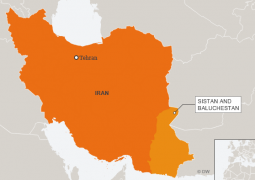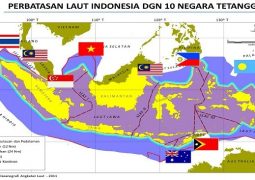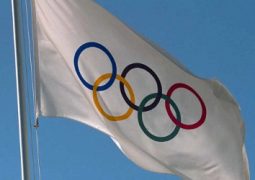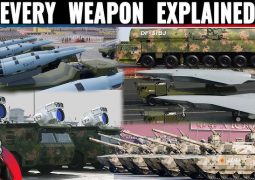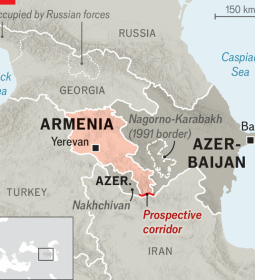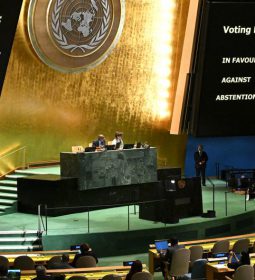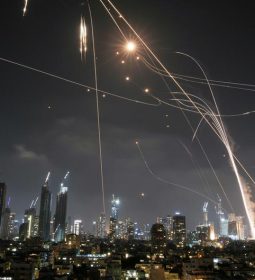With Whom Marshal Haftar will join hands? Russia’s endgame in Libya
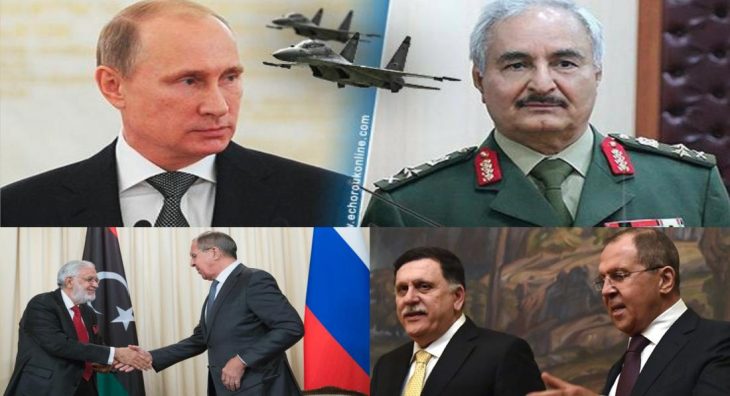
![Russia's endgame in Libya Khalifa Haftar, commander of the Libyan National Army (LNA) militia, leaves after a meeting with Russian Foreign Minister Sergey Lavrov in Moscow on November 29, 2016 [File: Reuters/Maxim Shemetov]](https://www.aljazeera.com/mritems/imagecache/mbdxxlarge/mritems/Images/2019/7/10/cc5449c6f7e14258bbe136e656e79ba6_18.jpg)
The escalation of conflict in Libya has exposed a great deal of foreign meddling that outside powers, both regional and global, would have preferred to keep under the radar. Russia, which would normally end up in Libya-related headlines for all the wrong reasons, has tried to take a backseat on the Libyan issue ever since renegade marshal Hafter launched his Tripoli offensive in April 2019.
Over the past three months, Russian diplomats have been making only vague statements on Haftar’s ongoing military operation against Tripoli. Two days after the launch of the offensive, Foreign Minister Sergey Lavrov said at a in Cairo that Russia was against any attempts “to unilaterally pin the blame” on one side for the escalation in Tripoli. At the same time, when asked whether Moscow backs Haftar, he responded that Russia supports “all Libyan political forces so that they agree among themselves and so that no one imposes anything on them.”
The ambiguous statements, however, have been overshadowed by blunt diplomatic moves in support of Haftar: On April 7, Russia blocked a UN Security Council statement that would have condemned Haftar’s Tripoli offensive. While privately Russian policymakers conceded that this operation was a poorly planned adventure that was doomed to fail, publicly the Kremlin was not prepared to burn the bridges with the renegade general and decided to extend diplomatic support to him.
Early on Haftar found a willing partner in the face of the Russian defence ministry which saw his Libyan National Army (LNA) militia as a proto-army that can be the backbone of governance in eastern Libia. There is a great deal of convergence on the issue of Libya between the Russian military and Haftar’s leading backers in Cairo and Abu Dhabi. His operations in Benghazi and Derna supported by the two were lauded by the Russian authorities as successful counterterrorism efforts.
Russia also backed Haftar’s LNA earlier this year when it launched an operation to take over the oil-rich southern part of the country, known as Fezzan. According to some sources, the offensive to a large extent became possible due to an injection of cash printed in Russia in close coordination with Abu Dhabi and Cairo. Parallel government structures in the east have had Libyan currency printed in Russia since 2016 due to disputes with Tripoli.
Haftar’s triumph in the south, particularly, the takeover of the Sharara and El Feel oil fields, became a game-changer for a lot of international actors, including Russia. Before his campaign to take over Fezzan, the LNA commander was promising Russia lucrative oil export contracts. According to sources in Moscow, he told the Russians in 2018 that once he gains full control over oil exports through the parallel office of the National Oil Company (NOC) in Benghazi, Russian companies would be allowed to collect oil at the terminals of the “oil crescent”, stretching from the city of Sirte to Ras Lanuf.
Once this idea fell through, he attempted to facilitate a deal between the Russians and the NOC CEO Mustafa Sanalla and also failed.
When Haftar took control of Sharara and El Feel in February 2019, Moscow became convinced that it was only a matter of time until he also took over the NOC and is able to discuss serious business. Thus, when the general launched his military assault on Tripoli, he had the support of the Kremlin.
As it became increasingly clear that Haftar’s campaign was not going to yield a quick victory, Russia’s position on Libya evolved to what may be described as strategic ambiguity. Seeing how a number of foreign countries got dragged down into the conflict over Tripoli, including France, Turkey and the UAE, the Kremlin made a strategical decision not to get involved in a fight that is essentially a zero-sum game.
Unlike Egypt and the UAE, Russia has no interest in actively intervening in the Tripoli offensive on behalf of Haftar. At the same time, policymakers in Moscow still don’t see him as a liability for a number of considerations. First, Russia still sees that governing structures in the country’s east as well as the LNA as fully legitimate, unlike the Government of National Accord (GNA). Second, the Russian defence ministry prefers to deal with a military man, such as Haftar, in Libya. Third, in the event that Haftar eventually succeeds in relocating NOC operations to Benghazi or replaces Sanalla, with a loyal figure, Moscow would be able to reap the benefits of its long-term support for the general.
If that doesn’t happen, and the fight over Tripoli lasts long enough and bleeds both parties out, Moscow still sees itself as the potential winner of the situation. It hopes that Haftar’s snowballing failures in western Libya will make him more tame and cooperative and that a cornered Tripoli would take engagement with the Russian government more seriously.
Against the backdrop of the ongoing conflict, the Kremlin sees its relations with the GNA and General Haftar as purely transactional at the moment, meaning that it is willing to extend its support to the highest bidder. Both sides have made attempts to arrange high-level meetings with the Russian leadership, but so far, the Kremlin has kept a certain distance.
Haftar’s fixers in Moscow requested meetings with Foreign Minister Lavrov and Defence Minister Sergey Shoigu twice since April, but what they managed to secure was a low-key private visit for the general in late May.
The GNA was even less fortunate in its attempts to win over Moscow. This may have to do with the fact that relations between the two governments have been uneasy for a while. Sources reveal that during the Palermo conference on Libya in November 2018, GNA head Fayez Serraj expressed dissatisfaction to the Russian Prime Minister Dmitry Medvedev over Russia’s continuing support for Haftar and the printing of Libyan dinars in Moscow, which destabilised Libya’s financial market.
Despite renewed interest of the GNA to reach out to Moscow, the Russian foreign ministry has not been too eager to receive GNA representatives. The parties cancelled two planned visits of Deputy PM Ahmed Maetig and Foreign Minister Mohamed Siala that were scheduled for May. The two sides have not been able to establish the terms of cooperation which impedes the kind of relationship that Moscow would expect to have with a central government.
Sources in Moscow lament that the two are still working out the details of long-discussed trade deals, as well as struggle to finalise the return of two Russian sailors who were sentenced to three years in prison in Tripoli in 2018, all of which needs to happen first before the Kremlin can discuss other political and security issues.
While Libya is not Russia’s top foreign policy priority at the moment, the Kremlin sees the need to remain relevant in the Libyan context. Haftar’s long-nurtured hope that Russia will intervene militarily in his support alongside the UAE is grossly misplaced. Presently, a UNSC veto is the strongest weapon Moscow is willing to use in Haftar’s favour.
However, how long the Kremlin continues to back the general for will depend not so much on his failures, of which there have been many, but rather on what the GNA in Tripoli is ready to do to win its support.
The views expressed in this article are the author’s own and do not necessarily reflect Al Jazeera’s editorial stance.
- Previous 22 countries sign letter calling on China to close Xinjiang Uyghur camps
- Next Shyam Saran, Hindustan Times: Hong Kong protests have dented China’s image of invincibility




